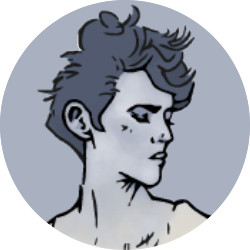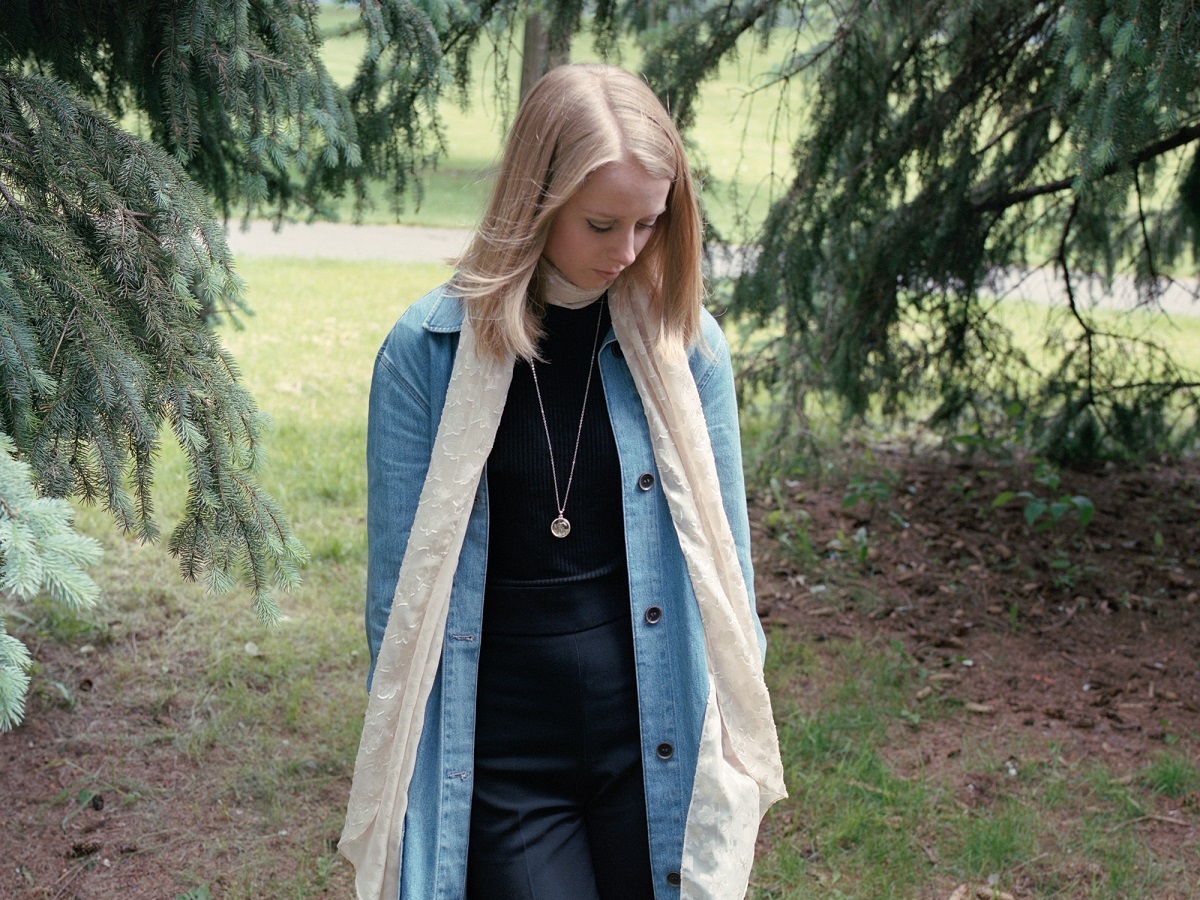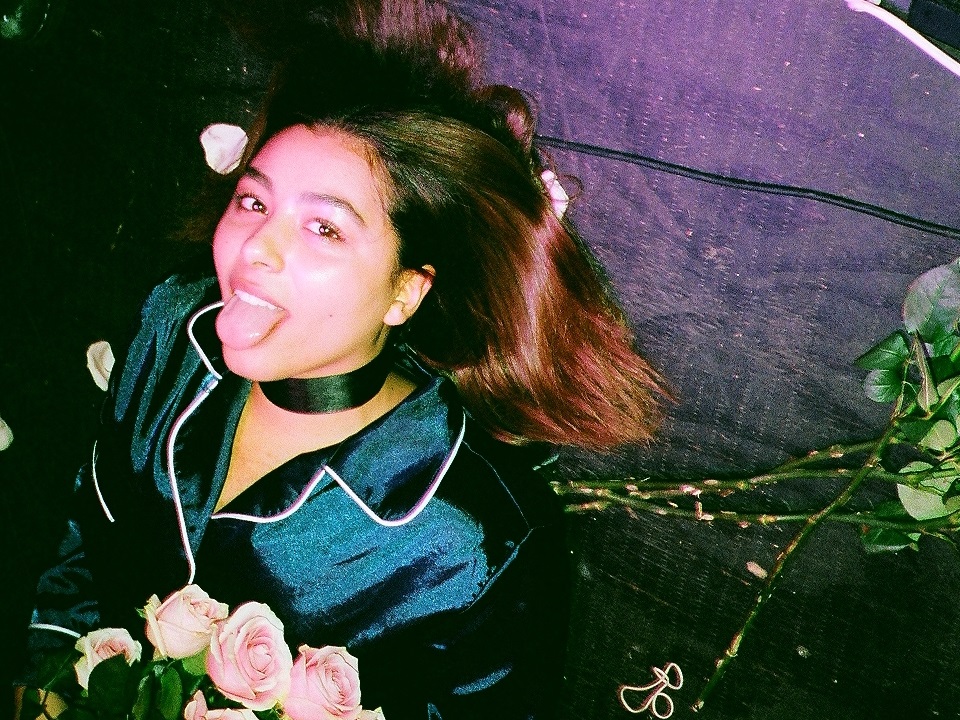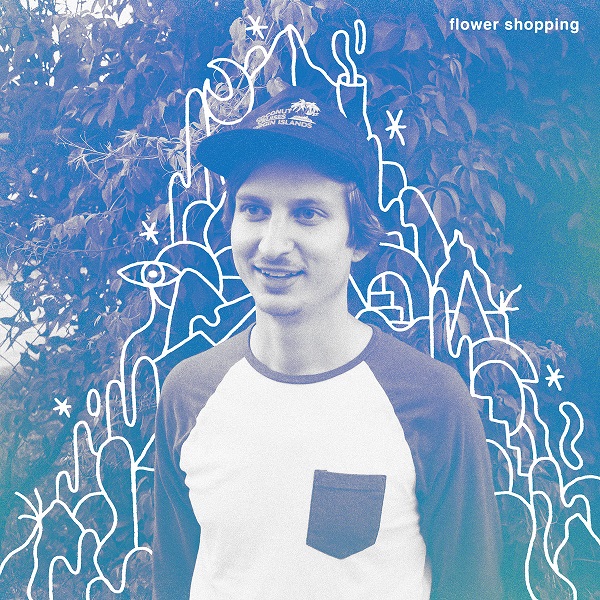 Photo credit: Nate Puza
Photo credit: Nate Puza
The Interview
What was it that initially inspired you to try your hand at writing songs?
Ross: I was playing music for a long time — I started taking piano when I was seven years old. I think when I picked up a guitar as a teenager, that was more inspiring from a songwriting standpoint, but I’ve always tried to write songs. I have some really terrible recordings of some really bad songs on an old tape recorder somewhere. I think it just felt like the thing to do — it wasn’t necessarily a decision.
What was it that prompted you to commit to a solo project?
Ross: I was in a band up until last year called Release the Dog. We were around for five years or so — it was my first real band out of college. I had a bunch of songs that I’d written that didn’t really go along with that band. In that five years, that was my main band, but I was also in a bunch of other projects — just experiencing writing in a group setting and fronting a band.
Having these almost folksy songs, they didn’t really go with anything else. But I think the main focus for flower shopping was to try to write songs that sound good by themselves. When you write in a group setting, it’s really easy to be like, “Yeah! That sounds great!” Because it’s super loud, and you’re all feeding off each other’s energy. But then, sometimes, you strip it down to just acoustic and vocals and it doesn’t have the same effect. And not everything has to, but that was my goal for this: to have something that could stand alone. And I guess I still haven’t fully committed to this project — I’m still trying to see where it’s heading. But I’ve gotten some good reactions, so it’s just kinda what I do, and I’m going to keep doing it for as long as I can.
So has the reaction to the project been more positive than you were expecting?
Ross: It’s not so much that I wasn’t expecting a good reaction, it’s just that I didn’t want to expect anything. Booking shows, and trying to tour around and buddy up with bands — it takes a lot of time, is really hard and can be really frustrating. I’m in this other band right now called Barnwell, and we’re all best buds — we’ve been around for about four years, so that’s a pretty big time commitment for me. With this, it was like, I’m just going to try to make the recordings and the music really good, put it out there, advertise it and see what happens. And I haven’t had to book my own show yet, which is great, because it’s kind of a pain sometimes. I’ve had some friends be like, “Hey! Hop on this show with us.” That’s been great.
What will probably happen is, once that stops — if I have a lull in show offers I think are cool — I’ll probably start recording again. I don’t have any super ambitious plans at the moment. [laughs]
With regards to the live environment: Have the shows you’ve played thus far been stripped back?
Ross: Actually, I’ve been trying to do a full band. The band I’m in, Barnwell, it’s pretty much just those guys and another one of our friends on keyboard and background vocals. I’ve tried to make it a full band experience, and that’s worked pretty well, but the problem is that we don’t have a lot of time to practice. I feel like I need to record some new songs — right now we only have five full band songs, and I’ll play one or two on my own depending on how long the set time is.
How does playing live as flower shopping feel compared to the band you were in before?
Ross: It’s way different. I’m focusing more on trying to make the songs sound good by myself, so once I’ve taught these guys the songs — and I kinda taught them all the parts that are recorded — I was like, “Y’all are good musicians. You know what I recorded — now you can kinda play with it.” But unless something terrible happens in the band, I’m not really thinking about what they’re doing — I’m just up there playing, and everything they’re doing makes it sound really awesome and full. It was almost more stressful in the other band because I was focusing really hard on listening to what my bandmates were doing instead of what I was doing.
So, what is your songwriting process?
Ross: I start with two different parts — the music and the lyrics are separate, usually. If I have a bunch of musical ideas and then a bunch of lyrical ideas, I try to see which ones I can match together. Sometimes I’ll have a musical moment that I really like, and then I’ll just have a line or two pop into my head that seems to work with it. Then I’ll kinda think, ‘well, what does that mean?’ and try and build off of that. But it’s different every time. I focus a lot on the music as a listener. When I’m listening to music, I really like a good chord progression and a good aesthetic; that all the sounds being put into it are really well thought out and blend together.
So that’s what I do with my songs: I try to make a good guitar part and try to see what vocals I can add to it. But there have also been times — it’s more rare — where I’ll write lyrics and have melody pop into my head along with the lyrics. But usually it’s music first, lyrics second. I try to focus really hard on lyrics — I’m not saying that they’re an afterthought — but the song wouldn’t exist if I didn’t think the music part was cool.
So does the music side come easier to you than the lyrical side?
Ross: I’d say so. I mean, for both music and lyrics I try to make something that sounds earnest. I’m not going to pretend that I’m a super deep human or anything, but I try to write music and lyrics that I one-hundred-percent believe in. Sometimes the lyrics do come a little more difficult, and I tend to write sadder songs. I’m not a super sad person — it’s just a good way to vent that emotion. Otherwise, I would be venting that in everyday life a lot more often, and that’s just a thing that I don’t really want to do. I try to write stuff that really means a lot to me, and I try to keep it somewhat ambiguous so it can be open to interpretation. I’m kind of a perfectionist, so overthinking everything all the time, especially when it comes to lyrics because that’s what most people are going to take away from it.
Are there any especially prominent creative obstacles you face?
Ross: Just time, really. I recently started doing music full-time, which is great, but it’s not as a creative thing — I teach music. So that’s a lot of fun, and music’s just an everyday part of my life now. But a lot of what I do with music is lesson planning and learning these songs that I can teach to people.
Actually, the biggest creative obstacle for me is probably when I sit down with the intention to create. Because if I sit down, like, “Okay, I’m gonna write a song” then it’s just going to be terrible and it’s going to sound really contrived. Normally the best riffs or whatever that I come up with, I’m just sitting on the couch watching TV with my guitar.
And I guess sometimes I don’t have stuff to write about lyric-wise, but I can usually find something.
Is there anything that irritates or frustrates you about the type of music that you make?
Ross: I think, sometimes, I wish that I could write happier songs. I feel like every time that my parents listen to anything I do, they’re like, “You should write happier songs. Why are you so sad?” It’s not really that I’m this super depressed and sad person, it’s just a good way to vent those emotions when I do have them. And it’s relatable to a lot of people.
As far as the genre of music that I’m in as a whole, I think there’s this glorified ‘sadboy’ type thing that’s kind of irritating sometimes. People are just like, “Yeah! It’s cool to be sad”, and I’m like, “Nah, it kinda sucks.” [laughs] But also, I don’t really know how to write super happy songs without making them somewhat bittersweet. It’s hard to write like Jimmy Buffet, where everything’s great and you’re eating a cheeseburger in Hawaii or whatever. That’s not really super relatable. It’s good background music when you’re at the beach, but it’s not something I seek more out of.
I find myself torn on the sadboy/sadgirl issue, because I’ve definitely noticed that same glorification of sadness (particularly on social media) and wondered how healthy and helpful it actually is long-term, but at the same time, sharing feelings and demonstrating to others that their sadness isn’t entirely unique — those are unmistakably positive things that shouldn’t be discouraged.
Ross: Yeah, that’s a really good point. I think it’s just the people who use it in the wrong sort of way, like they’re just trying to be hip or something: people who make suicide jokes and stuff — it makes me kinda uncomfortable. It’s good to know that people have the same thoughts, and mental health awareness is a good thing, obviously, but sometimes I feel like focusing on that emotion too much, it’s almost like a self-fulfilling prophecy. If that is what your image is, it’s gonna snowball and that’s gonna be how you are, I guess. So yeah, I’m torn on it too a little bit. I, personally, don’t consider myself a sadboy, and I don’t want to be a sadboy – I want to be a ‘happyboy’. [laughs]
Okay, so what is it that you really love about your particular style of music?
Ross: I think it’s cool because it’s not really confined to one genre. I think ‘alternative’ is a super broad term, but it kinda does capture the essence of that compilation. I think what’s cool about music lately is that there’s a lot of tonal exploration, and the themes that people write about are pretty relatable. I guess, with my music, I’m just a guy who plays guitar, so I try to make it sound like cool guitar music. There’s a lot of cool guitar music out there now, which is nice because it always seems to be going out of style — at least, in the last decade it seems like guitar music’s gone out of style.
One thing I’ve really found lately is that there are a lot of good bands that seem to fall right in between genres, which is great but also makes it difficult to know where exactly to fit them in with regards the compilations.
Ross: I think that’s the beauty of music: you can do anything you want. Definitely with alternative music there’s not really a specific sound that defines it. Although I do think there are definitely bands out there that define a lot of younger bands that are popping up now. Mac DeMarco’s a big one — people trying to be that happy-go-lucky dude on stage with twinkly guitars and stuff. That’s really cool. And Frankie Cosmos — I see a lot of bands doing similar things to that. Those are some cool bands that have sort of defined the last several years of music — at least that I’ve listened to and maybe got some influence from.
So what sort of direction do you see flower shopping going in stylistically?
Ross: Well, since I’ve been playing with a live band, I’ve definitely thought more about how these songs are going to come across in a live band than I did when I was recording the songs for the last EP. The newer stuff, I’m probably going to crank up the tempo a little bit, because we had one song that was kind of a slower one that we played live — it’s not on the EP — and one time we counted it off too fast, and it actually sounded really good and the crowd was really into it, so I was like, “Maybe that one should be a little bit faster.” [laughs] I guess it just made me think: What is fun about playing these songs live with my friends?
Otherwise, it’s going to be pretty similar, probably. Maybe a little bit more polished.
Is there anything in particular you learned from the first release that you’ll take into future stuff you do?
Ross: Maybe from a recording standpoint there were some things — since I recorded it all myself, that was a huge learning experience. Figuring out a good way to make that process easy for me. So, just not being a perfectionist from the beginning of the song. Because what I was doing, typically, for a couple of those songs — I’m not a drummer by trade — I would do countless drum takes, and just be overthinking it. The one that got on your compilation, that was one of the first few takes. I’d set this arbitrary deadline for myself to release the EP, which was a couple of days away, and I was like, “Well, I just need to use this take. I guess I’m just gonna try to layer some instruments on top of it… Yeah, that sounds cool.” I was going through and adding stuff really quickly, and then that’s the one that everybody likes. [laughs] So, I guess what I learned was maybe don’t overthink it, and just trust the song.
It must be good to know that you have that in you: to instinctually be able to put something together so quickly?
Ross: Yeah, that was a fun experiment. Since I was running so low on time to meet this deadline — that nobody would have cared if I missed anyway, but just had to make for my own sanity — I was debating doing that one as acoustic and vocals. I’m really glad that I didn’t, because like I said, people seem to hear that one and go, “Yes! That’s a great one.”
It was my wife helping me decide what to do. She helped me make a lot of little decisions, where I’d be like, “Does this sound cool, or is it too much?” That song was one of them — she was like, “I think you should do it full band. The rest of the songs are full band, and you should at least put some stuff in there.” So, I spent a couple of days putting keyboards and guitars and stuff on it. If you isolate the drum take, it’s not a great take rhythmic-wise, but that’s what this whole project is about: learning how to do this, I guess.
How important was it for you to have your wife giving you feedback? To have someone who could give you a different opinion?
Ross: It was very important. Some of the songs would be quite different. Just having an outside ear. She’s played guitar and stuff in the past, and she’s sang — she’s got a good ear for music — but she’s not really a musician, so it’s good to have somebody from the outside be like, “No, that doesn’t sound good.” Because it probably just sounded cool to me because it’s maybe like an interesting musical thing to do, but that doesn’t necessarily make it appropriate. So yeah, that was really important. One of the songs was going to have a slide guitar solo at one point — it would have been weird, so I’m glad that didn’t happen. [laughs]
What do you feel that you gain from being musically inclined?
Ross: I studied music in college, so I have a lot of theory background — just constructing songs and being able to figure out different ways a song can go. That really helps.
And what does having a creative outlet do for your life in general?
Ross: It’s great. It keeps me busy, and it’s nice to have some feelings, emotions, that I put into music — and as much as I want to pretend that I don’t care what other people think, of course it’s nice to hear people say that they relate to the feelings that I’m putting out there. It’s nice to have a passion that I can pursue — I’ll be able to do it for the rest of my life. I feel like some things you can’t do that — you can’t play football until you’re eighty.
And especially if you’re teaching music, it’s fun to inspire kids and adults. And when you meet other people who are into music — like, I relate to you, halfway across the world, just because we gel musically. That’s a cool thing to be able to relate to people that way. If there’s an open jam or something like that, take your guitar and go jam with people and learn something from them, maybe teach them something. It’s cool. It’s something I’m really thankful to be able to do.
Finally, to what extent would you like your creative output to define you as a person?
Ross: It’s probably less and less over the years. My early twenties, I was like, “This is me that I’m putting out there right now!” I think that’s okay, but as a result, I’d get my feelings hurt if people didn’t like it. Maybe that has less to do with it defining me and more to do with confidence — if my output defines me now and somebody doesn’t like it then I’m just okay with that.
But yeah, my creative output does define me in a lot of ways. But I have a lot of different outputs: I do this, and I have Barnwell, and getting to be creative in teaching music, and studying music like jazz and stuff like that. I feel like music is one big creative output for me, even if I’m not putting it all out there. Some people might say, “This is my diary, and putting it out there in the world means everything to me.” I guess I’m halfway between that and saying, “It’s just music, and if you don’t like it, that’s fine — maybe somebody else will.”
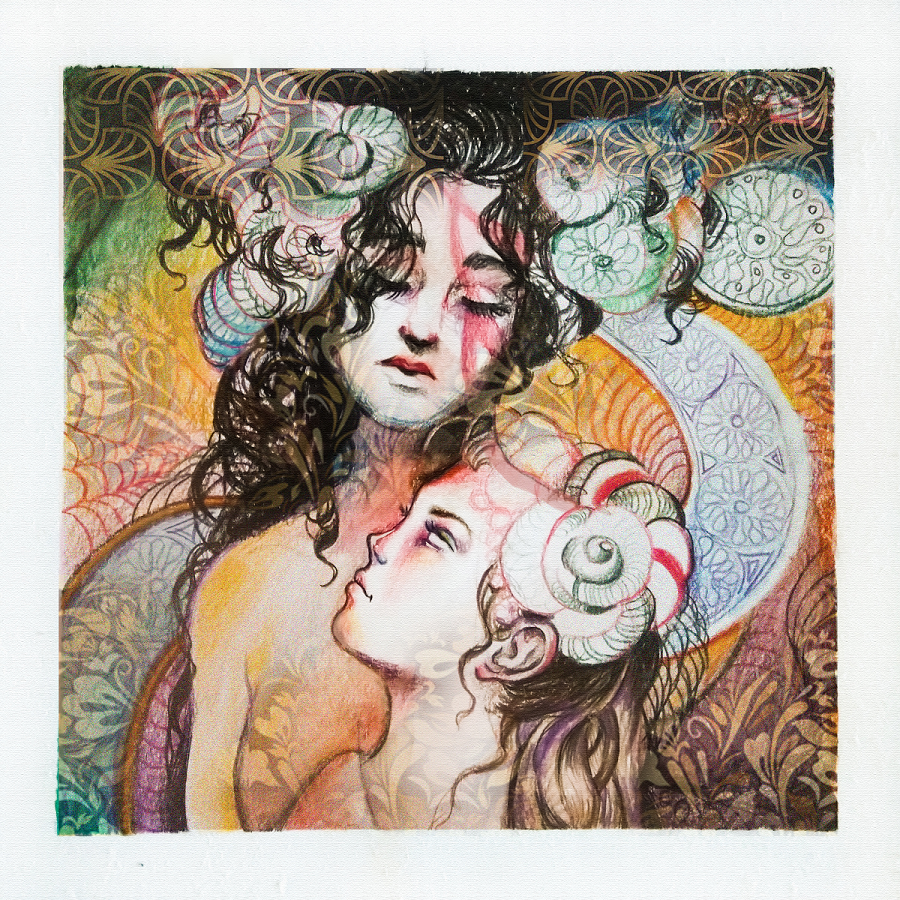 flower shopping featured onAlternative Melodies 7
flower shopping featured onAlternative Melodies 7You can stay updated with all things flower shopping on Facebook and Instagram, and stream or purchase the debut EP over on Bandcamp.
If you enjoyed reading this interview and happen to think we're doing something right, please consider sharing the link -- whether on social media, or just with a friend, it'd really help us out! We're also on Facebook, Instagram (@alonelyghostburning) and Twitter, so if you'd like to keep up-to-date with the publication of new content, and also provide us with a whole heap of motivation, please do give us a like or follow.
